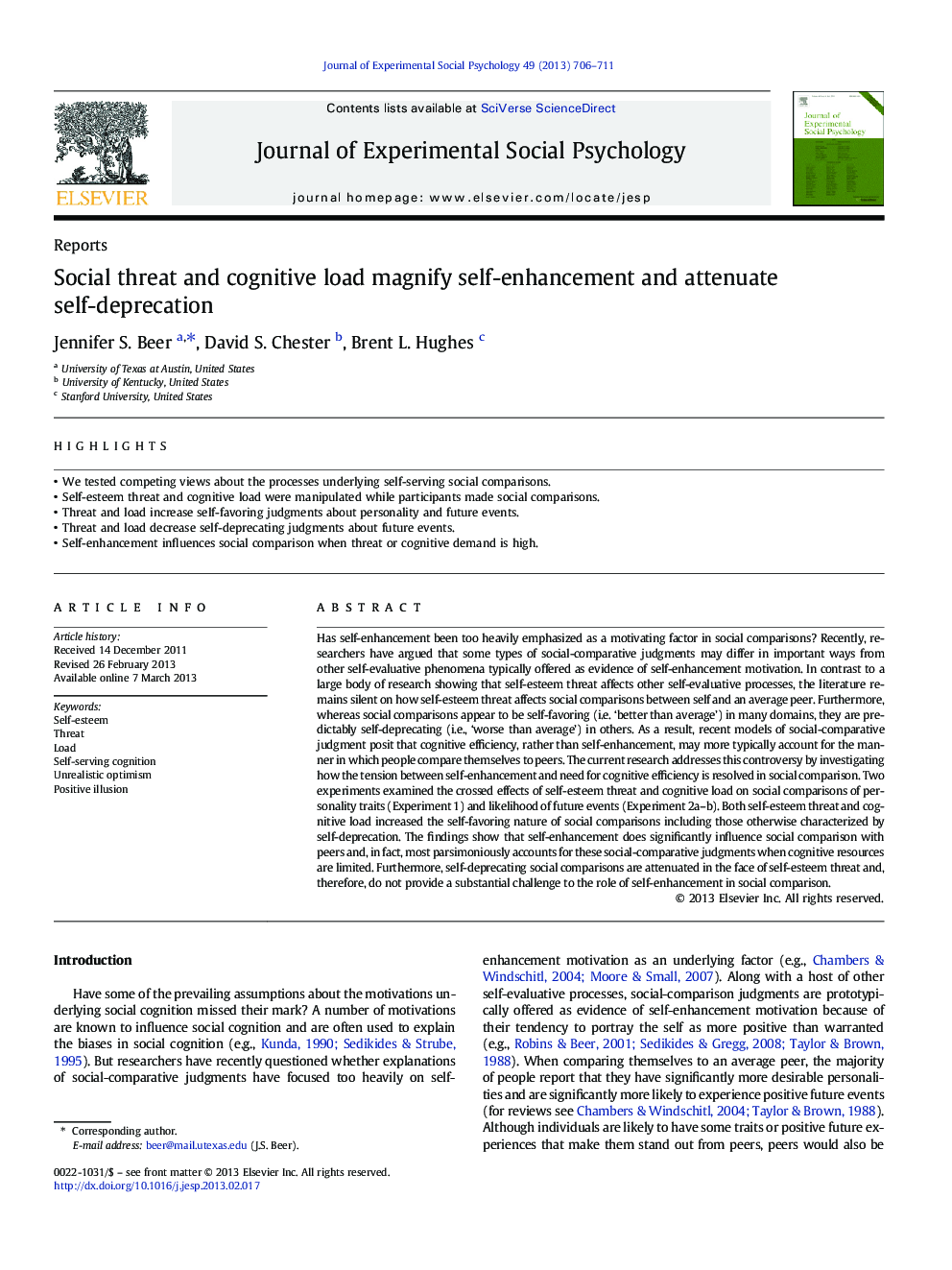| Article ID | Journal | Published Year | Pages | File Type |
|---|---|---|---|---|
| 947922 | Journal of Experimental Social Psychology | 2013 | 6 Pages |
•We tested competing views about the processes underlying self-serving social comparisons.•Self-esteem threat and cognitive load were manipulated while participants made social comparisons.•Threat and load increase self-favoring judgments about personality and future events.•Threat and load decrease self-deprecating judgments about future events.•Self-enhancement influences social comparison when threat or cognitive demand is high.
Has self-enhancement been too heavily emphasized as a motivating factor in social comparisons? Recently, researchers have argued that some types of social-comparative judgments may differ in important ways from other self-evaluative phenomena typically offered as evidence of self-enhancement motivation. In contrast to a large body of research showing that self-esteem threat affects other self-evaluative processes, the literature remains silent on how self-esteem threat affects social comparisons between self and an average peer. Furthermore, whereas social comparisons appear to be self-favoring (i.e. ‘better than average’) in many domains, they are predictably self-deprecating (i.e., ‘worse than average’) in others. As a result, recent models of social-comparative judgment posit that cognitive efficiency, rather than self-enhancement, may more typically account for the manner in which people compare themselves to peers. The current research addresses this controversy by investigating how the tension between self-enhancement and need for cognitive efficiency is resolved in social comparison. Two experiments examined the crossed effects of self-esteem threat and cognitive load on social comparisons of personality traits (Experiment 1) and likelihood of future events (Experiment 2a–b). Both self-esteem threat and cognitive load increased the self-favoring nature of social comparisons including those otherwise characterized by self-deprecation. The findings show that self-enhancement does significantly influence social comparison with peers and, in fact, most parsimoniously accounts for these social-comparative judgments when cognitive resources are limited. Furthermore, self-deprecating social comparisons are attenuated in the face of self-esteem threat and, therefore, do not provide a substantial challenge to the role of self-enhancement in social comparison.
